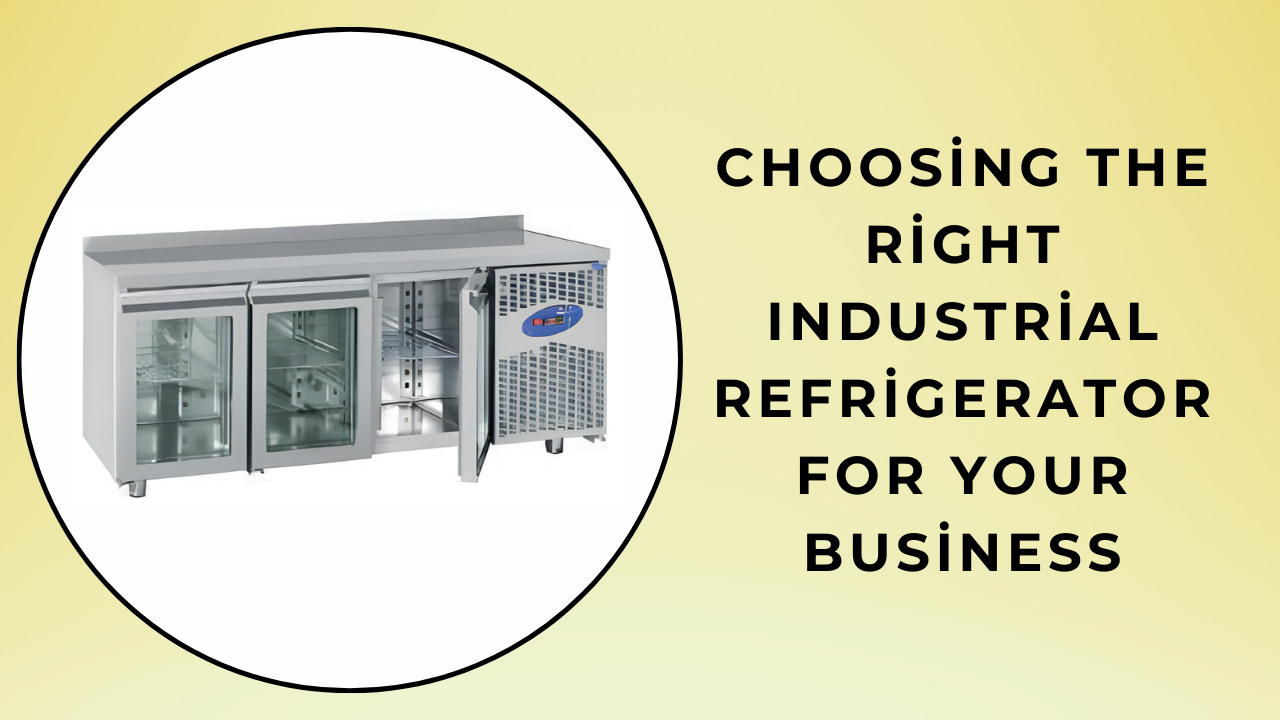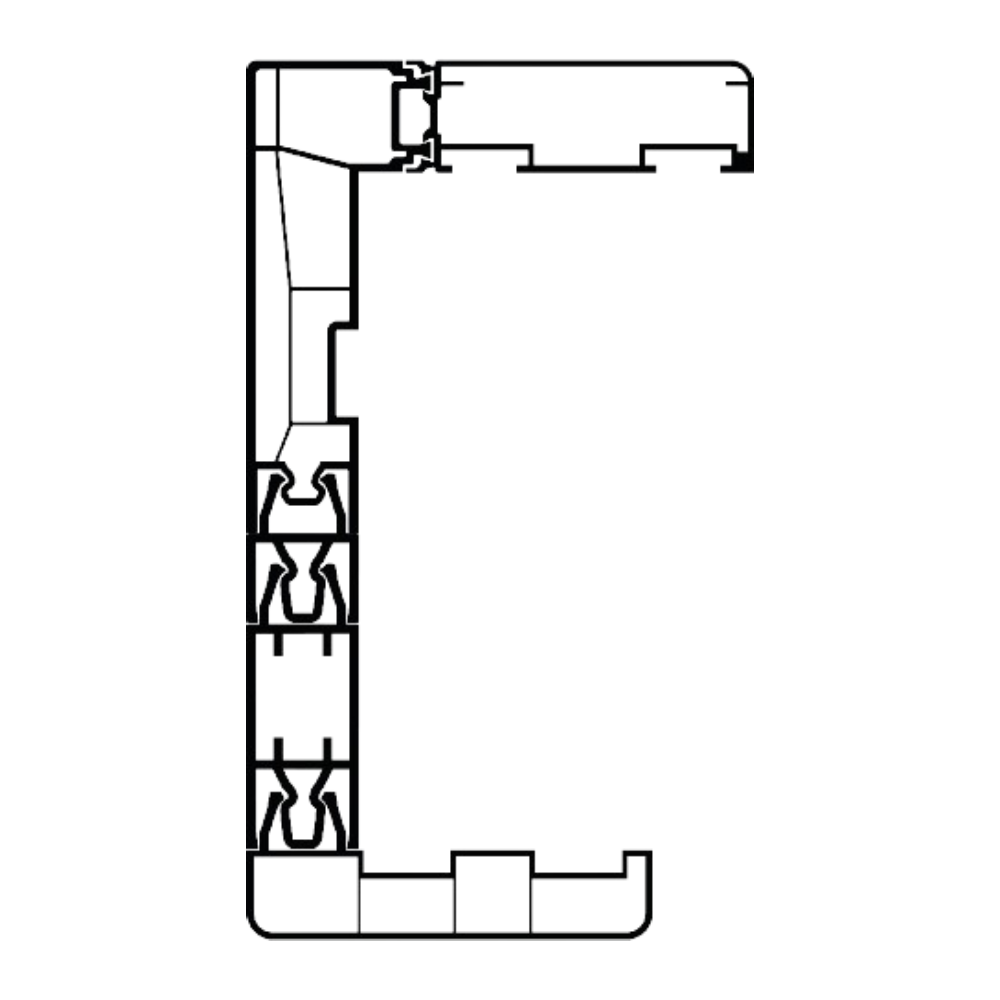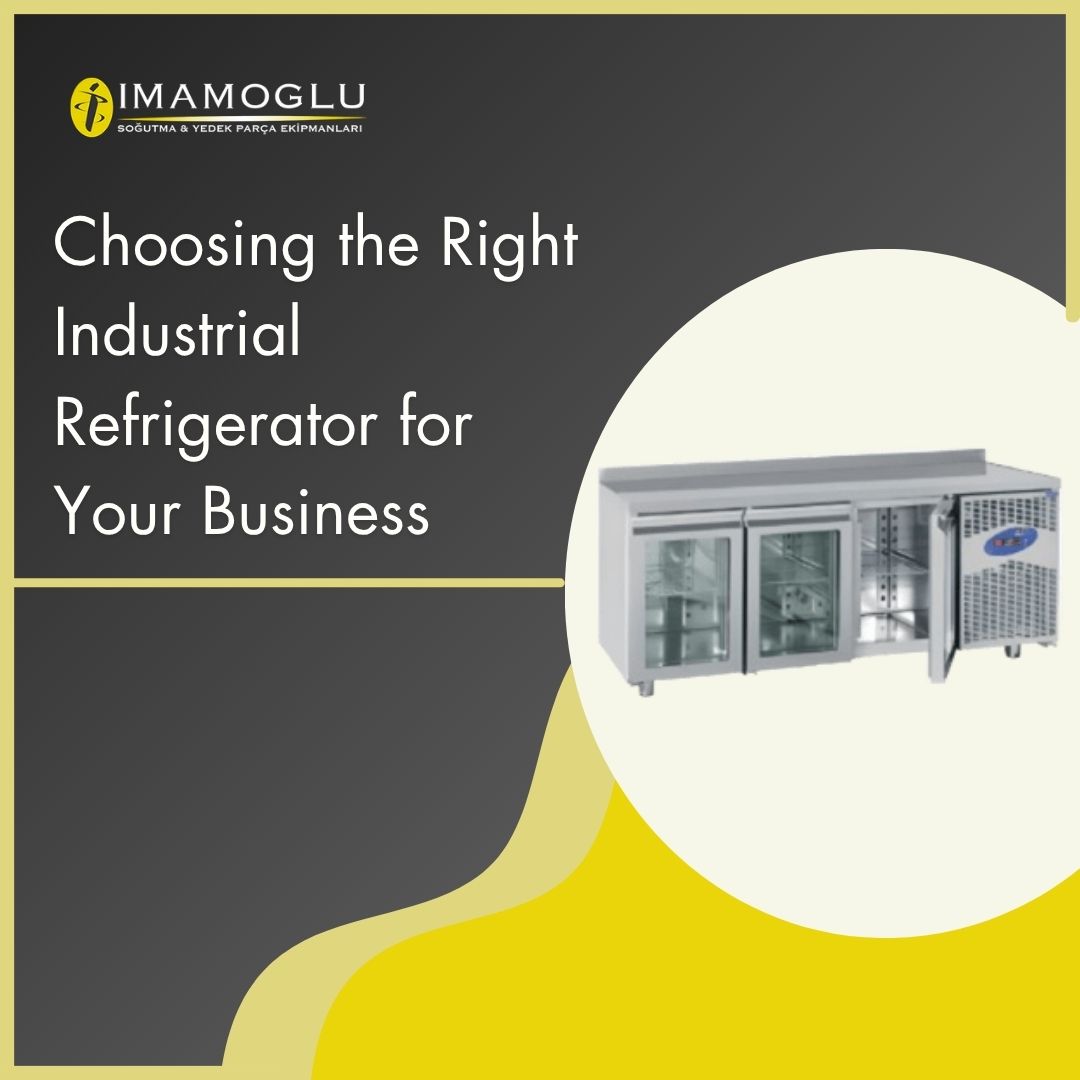Choosing the Right Industrial Refrigerator for Your Business
What is an industrial refrigerator?
Industrial refrigerators are special cooling systems that allow the storage of large volumes of food and beverages, generally used in restaurants, hotels, food production facilities and other commercial areas. These refrigerators are made of durable materials and can withstand high temperature changes. Industrial refrigerators are generally designed with larger capacities; In this way, it has the ability to keep large amounts of food and beverage products cold. Different models vary according to different storage needs and should be chosen considering factors such as energy efficiency, cooling performance and ease of use. A suitable industrial refrigerator ensures food safety for businesses while also increasing work efficiency.
What should be considered when buying an industrial refrigerator?
When purchasing an industrial refrigerator, the needs of the business should be taken into consideration first. First, the size of the area where the products will be stored and the capacity of the refrigerator should be evaluated. The energy efficiency of the refrigerator is also important; energy-efficient models can reduce operating costs in the long run. Cooling technology determines how quickly and effectively products are cooled; Therefore, models using freon or environmentally friendly refrigerant should be preferred. Elements such as ease of use, lid type, countertop or vertical design should also be taken into consideration. The fact that the refrigerator is easy to maintain and clean contributes to its longevity. Working with manufacturers that offer a good warranty period and after-sales support service makes it easier to solve problems that the business may encounter in the long term.
Which type of industrial refrigerator is suitable for me?
To determine which type of industrial refrigerator is suitable, your business needs and warehouse space must first be considered. If you are storing large amounts of food, large-volume, space-saving vertical refrigerators may be preferred. For restaurants, countertop refrigerators are useful for providing both storage and quick access. Refrigerators with freezer compartments can help food products stay fresher for longer. If you frequently store different types of products, multi-purpose refrigeration units can be chosen. Models that comply with food safety and hygiene standards should be preferred. Choosing a refrigerator that offers good cooling performance and energy efficiency will reduce operating costs in the long run.

Why is energy efficiency important?
Energy efficiency is an important factor in the selection and operating costs of industrial refrigerators. Energy efficient devices operate by consuming less energy; This can result in significant savings on electricity bills. Energy saving contributes to environmental sustainability because less energy consumption also reduces greenhouse gas emissions. By choosing devices with high energy efficiency, businesses have the opportunity to show environmental awareness while reducing operating expenses. Industrial refrigerators with a higher energy efficiency class generally offer better cooling performance and less risk of malfunction. Therefore, paying attention to the energy efficiency class when purchasing a device provides significant advantages to the business in the long run.
How should I maintain my industrial refrigerator?
Maintenance of industrial refrigerators is critical to both extend the life of the device and ensure food safety. First, the interior and exterior surfaces of the refrigerator need to be cleaned regularly. It is important that the materials used for cleaning comply with food safety standards. The cooling system needs to be free of any dust or dirt debris that could obstruct airflow. Maintenance should also include regular checking of filters and replacement when necessary. Checking electrical connections and temperature settings is important to ensure proper operation of the device. Following the maintenance recommendations in the refrigerator's user manual will extend the life of the device and prevent possible malfunctions.
How to adjust the temperature in industrial refrigerators?
Temperature adjustment in industrial refrigerators is critical for the safe storage of food products. Generally, the temperature range of the refrigerator should be between 0 and 4 degrees Celsius; This prevents food products from spoiling. Temperature adjustment can usually be made from the control panel of the device. The panel contains the temperature display screen and adjustment buttons. Once the desired temperature is set, the device is expected to reach this temperature within a few hours. Temperature monitoring systems allow you to track temperature changes in real time; Thus, intervention can be made in case of a possible temperature increase. Checking the temperature setting regularly increases food safety. Making sure the refrigerator doors are closed tightly prevents temperature fluctuations.
Which products can I store in an industrial refrigerator?
Industrial refrigerators allow the storage of many different food products. Products prone to spoilage, such as meat, milk and dairy products, vegetables, fruits, beverages and cooked foods, are often stored in industrial refrigerators. However, care must be taken to ensure that stored products are kept at the appropriate temperature and to prevent cross-contamination. For example, meat and dairy products should be stored on separate shelves, thus reducing the risk of bacterial contamination. Temperature settings should be lower in compartments where frozen products are stored. The user manual of industrial refrigerators contains detailed information about which products can be stored; In line with this information, products should be placed and stored regularly.
How much energy do industrial refrigerators consume?
Energy consumption of industrial refrigerators varies depending on model, size, cooling technology and usage habits. Generally, refrigerators with larger capacity tend to consume more energy. However, models with higher energy efficiency can provide lower energy consumption with the same volume and performance. The annual energy consumption of an industrial refrigerator is stated in kWh and this value is included on the refrigerator's label. By choosing energy-saving refrigerators, businesses can both contribute to the environment and reduce energy costs in the long term. In addition, precautions should be taken to reduce energy consumption, such as not leaving the refrigerator doors open unnecessarily, regular maintenance and appropriate temperature settings.
Where is the best place to place an industrial refrigerator?
The placement of the industrial refrigerator is important for the device to operate efficiently and save energy. First, the refrigerator needs to be positioned in an area that should not be exposed to direct sunlight; This makes it easier for the device to maintain temperature balance. It should be ensured that the refrigerator's ventilation holes are not blocked; These holes support the efficient operation of the device's cooling system. Leaving enough space allows the refrigerator doors to be opened easily and provides access for regular maintenance. Being located close to electrical connection points increases energy efficiency. A good placement both prolongs the life of the device and facilitates the workflow of the business.
What do industrial refrigerator prices depend on?
Industrial refrigerator prices vary depending on many factors. First, the size and capacity of the refrigerator is one of the most important factors affecting the price. Larger and higher capacity devices are generally in the higher price range. The energy efficiency of the refrigerator, its technology level and the materials used are also factors that affect the price. For example, energy-efficient models may require a higher initial investment but can offset costs by saving energy in the long run. Additionally, factors such as brand, warranty period and after-sales support services may also affect prices. Doing good price research and comparing different models helps businesses find the price-performance balance that best suits their needs.
How often should I maintain my industrial refrigerator?
Maintenance of the industrial refrigerator should be done regularly; This is critical to extend the life of the device and ensure food safety. In general, exterior cleaning is recommended every week. Cleaning of interior surfaces should be done once a month or as needed, depending on how often food products are stored. It is also important to check the filters and replace them when necessary; This improves cooling performance. Regular checking of the cooling system prevents possible malfunctions. However, it is also important to follow the maintenance recommendations specified in the refrigerator's user manual; These recommendations increase the efficiency of the device and prevent possible problems. By creating a maintenance schedule, businesses can ensure regular and timely maintenance.
What should I do to extend the life of my industrial refrigerator?
Several important steps can be taken to extend the life of an industrial refrigerator. First, regular maintenance is essential; This ensures that the device always operates at optimal performance. Cleaning includes regularly wiping down both interior and exterior surfaces and checking filters. Make sure that the refrigerator doors are closed tightly; This helps the cooling system work more efficiently. Overload should be avoided; this may adversely affect cooling performance. Following the instructions in the user manual of the device ensures safe use and prevents possible malfunctions. Finally, the placement of the device should be arranged to save energy and avoid exposure to direct sunlight.









